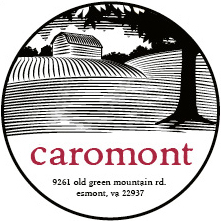Virginia Farm Invites People to Cuddle Goats; Everyone Applies
January 15, 2016
Gabrielle Saulsbery, Modern Farmer
Looking for a snuggle buddy this winter? So were the baby goats at Caromont Farm. How many takers have you had? Less than 300? Okay, then they have you beat.
The Charlottesville, Virginia, farm put out a call for volunteers last week to sign up for four-hour kid cuddling shifts in anticipation of the births of 90 baby goats come February. Previously, employees at the farm tackled kidding season sans outside help. “Every year we work our butts off with these baby goats, and everyone gets a little run-down,” says Gail Hobbs-Page, who started the farm in 2007.
To lighten the load, her employees suggested Hobbs-Page set up a program for people in the community to come help care for the little goats. Within a day, the local NBCaffiliate caught wind of the sign-up page, and within two, the Washington Post and Mental Floss picked up the story. Three days after the page went live, all the slots were booked.
“I guess I really didn’t know how news works now,” says Hobbs-Page. “This—going viral—was never our intention. The phone is ringing off the hook.”
The 120-goat farm makes 30,000 pounds of goat cheese each year to distribute up and down the east coast. Twenty-four hours after birth, they switch to bottle-feeding the kids with local jersey cow milk.
Seventy-two four-hour slots, with room for five volunteers each, are completely full. The farm may add more volunteer slots if not this year, then next: People have already requested the opportunity to hang with the goats during 2017’s kidding season.
“What I tapped into is some sort of need that people have to connect…to connect with something so innocent as a baby goat, and to connect with where their food comes from.”
“What I tapped into is some sort of need that people have to connect…to connect with something so innocent as a baby goat, and to connect with where their food comes from,” says Hobbs-Page.
She’s fielded requests from as far north as Québec, and as far west as California. For people willing to fly 2,500 miles for a short four hours spent cuddling and cleaning the babes, we say yes—she definitely struck a chord.
Daryan Abshire, who lives about an hour away, was lucky enough to snag a few spots herself. “I saw a post about Caromont on Facebook on the 8th and immediately signed up,” she says. “By the end of the day there were no slots left. It’s nice to know that when they grow, I’ll have helped them.”
Abshire has a couple pet goats herself, and plans to enroll in veterinary school. Volunteers are not required to have any previous experience with animals, however. Dawn Zanfardino, who booked a whopping twelve goat cuddle sessions, has very little.
“I moved to Virginia to focus on art, and part of the reason I signed up is for a chance to work with animals directly,” says Zanfardino. “Animals are the inspiration for my work.”
“Perhaps this has started a way for people to seek chances in their own communities to have this experience with a farmer.”
As for Hobbs-Page, she wants her and her goats’ fifteen minutes to inspire this sort of help at other farms.
“Perhaps this has started a way for people to seek chances in their own communities to have this experience with a farmer,” says Hobbs-Page. “Figuring out how hard we work, what we do, and how we love our animals to make food that is values-based and right. It’s not just a Virginia thing, it’s a worldwide thing.”
Hobbs-Page also hopes to open the public’s eyes to understanding the cost of artisanal food. Her farm uses non-GMO feed, does not underpay the labor, and does not simply leave the goats at the stockyard, preferring to extensively interview anyone it sells goats to. “I’m hoping from all this crazy stuff to be an advocate for people all over the world who are doing it right.”
